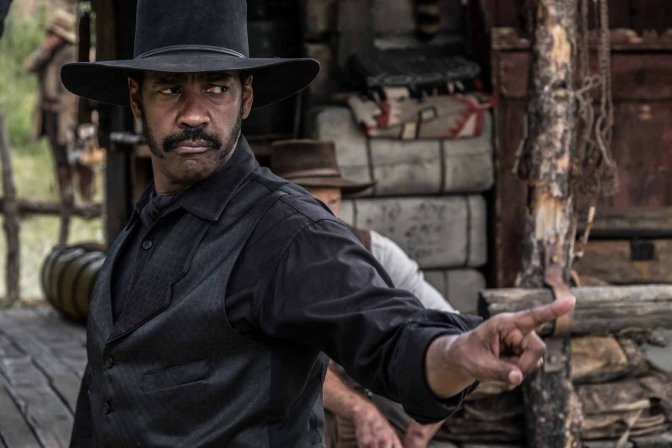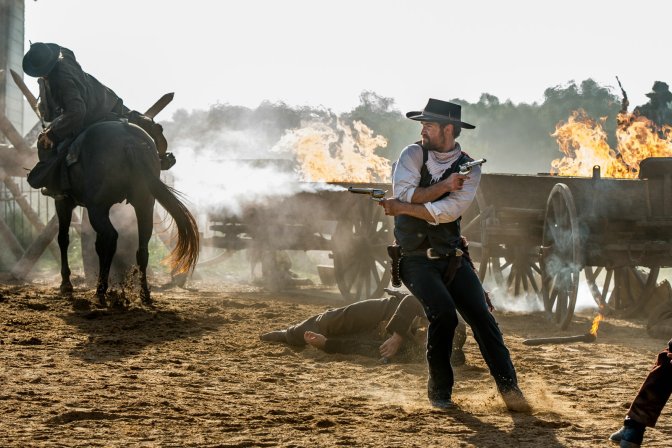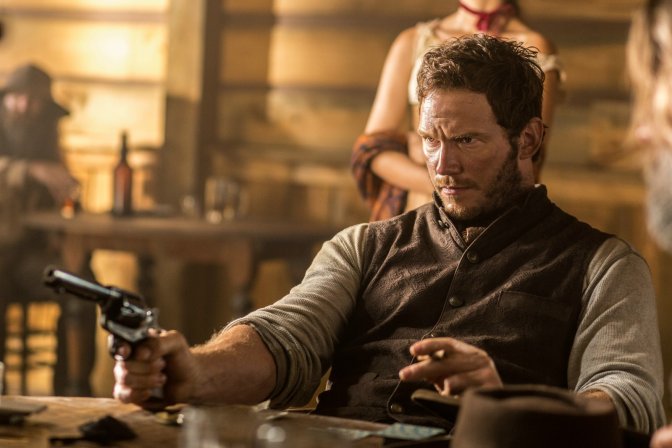While it won’t make us forget its illustrious predecessors, The Magnificent Seven , reworked in 2016, has enough assets to convince fans of cinematic authenticity.

- Director : Antoine Fuqua
- Actors : Denzel Washington , Ethan Hawke , Peter Sarsgaard , Vincent D’Onofrio , Lee Byung-hun , Haley Bennett , Chris Pratt
- Genre : Adventures , Action , Western , Remake
- Nationality : American
- Distributor : Sony Pictures Releasing France
- Duration : 2h13mn
- TV date : September 1, 2023 9:10 p.m.
- Channel : France 3
- Original title : The Magnificent Seven
- Release date : September 28, 2016
Summary: Industrialist Bartholomew Bogue reigns supreme in the small town of Rose Creek. To put an end to the businessman’s despotism, the desperate townspeople hire seven outlaws, bounty hunters, gamblers, and hitmen—Sam Chisolm, Josh Farraday, Goodnight Robicheaux, Jack Horne, Billy Rocks, Vasquez, and Red Harvest. As they prepare for what promises to be a merciless showdown, the seven mercenaries realize they’re fighting for more than just money…
Review: While it would be an exaggeration to say that the genre is once again in the odor of sanctity, the western nevertheless seems to be in a certain form in recent years. If all films cannot claim the commercial and critical success of a Django Unchained , varied productions like Lone Ranger (Disney blockbuster), Jane Got a Gun (guaranteed feminist twilight), The Ridiculous 6 (Netflix parody with Adam Sandler) and the highly recommended Bone Tomahawk (the horror charged with a Grand Prix in Gérardmer) perpetuate with diversity the love of the rugged West. More recently, it was The Hateful Eight , Tarantino’s second authentic foray into the genre, which will have left its mark, and in particular Sony in view of the poster of this new version of the Magnificent Seven which surprisingly resembles that of The Hateful Eight .
The comparison ends there, however, because instead of Tarantino’s brilliant, chilling huis clos, quite close to the horror genre film, director Antoine Fuqua prefers to anchor his work in a scrupulous classicism, in the noble sense of the term.
The Magnificent Seven is therefore the remake, yes another one, after the dreadful Ben Hur, at Paramount, of a classic from the early 1960s, which was, ironically itself, a Western rereading of the legendary Seven Samurai by a certain Kurosawa. The idea may arouse the fear of an opportunistic scam, but one easily succumbs to the charm of this cleverly fired enterprise .
If the plot is necessarily known, it is therefore the treatment calibrated for contemporary minds, in particular the rhythm, which asserts the difference. In this, the work succeeds rather well in its gamble, accelerating the plot, without taking any major risks, since it elegantly matches the means of its ambition.
The opening scene sets a familiar scene for those who worship the films of John Sturges and Akira Kurosawa. Like its two predecessors, the feature film opens with the presentation of a bourgeois woman whose tranquility is disturbed by the arrival of her future oppressors. From the calm arises the storm, a tension that rises crescendo until the explosion of the smoking gunpowder.
Following the initial shootout, Emma Cullen – played by Haley Benett whom the filmmaker already directed in Equalizer – decides to go in search of help that will take the virile form of seven men with strong specialties and personalities.
We thus find Denzel Washington (also in the cast of Equalizer ) in the clothes of a ruthless bounty hunter, but not devoid of a certain nobility; Chris Pratt, always very bankable , in his usual role of a flirtatious and jokey bad boy; Ethan Hawke as a traumatized veteran and a knife thrower played by Lee Byun-Hung (a Korean we loved in A Bittersweet Life and especially the definitive and essential I Saw the Devil ). We won’t forget to mention Vincent D’Onofrio, hyper-convincing in his gruff trapper outfit, and lesser-known names, like Manuel Garcia-Rulfo (playing a Mexican outlaw) and Martin Sensmeier (here taking on the costume of an Indian exiled from his tribe). The royal casting easily consoles us for Tom Cruise’s withdrawal from a project from which Jason Momoa also left to tame the seas in the superhero Aquaman .
We will credit this contemporary avatar of a genre often perceived as declining since the 70s with its propensity to reconnect with a certain violence specific to the westerns of yesteryear, notably spaghetti, or to Peckinpah. Of course, we are far from the raw and poetic savagery of what the author of The Wild Bunch was able to offer us , or even the broken faces specific to Sergio Leone’s cinema, but it is still the image of a dirty and far from glamorous Far West that is given to us here. All this results in action scenes that, without falling into the debauchery of hemoglobin, cherish a certain ferocity. Bullets and explosions fly: the impacts are felt.
We can regret that the music, far from being bad otherwise (and partly due to the late James Horner whose last contribution to the seventh art this will be) sometimes tends to dull the intensity of the action where the sound of the ammunition alone would have been enough, but the pleasure born from the magnificently choreographed shootouts is intense. We will not sulk our pleasure. Far from being a digital mush as is too often the case in major current productions, the fight hits “naturally” and is savored in physical bravery.

Far from being essential, the remake is not exempt from some contemporary nonsense. As soon as the explosions stop, the main flaw of the film is revealed, the less sustained rhythm accentuating some weaknesses. The alternation between dialogue scenes and powerful moments is systematic, to the point of bordering on redundancy in the narrative construction. A soft underbelly forms as soon as the triggers stop their chorus. The moments of respite are indeed sabotaged by some clumsiness and a certain heaviness of writing (some jokes miss their target). The writing blunders do not spare the characters themselves. Their motivations are sometimes vague and their past underexploited (this is particularly the case of the veteran of the Civil War, played by Ethan Hawke, whose aborted potential can be felt, as well as his relationship with Lee Byun-hung’s character). Would
The Magnificent Seven have then favored in-your-face entertainment over substance? Actually, no, and it is in the social subtext that the film finds its true strength, since the director also metaphorically shoots a certain form of wild capitalism. A desire that is defined from the beginning, by changing the Mexican village struggling with bandits from the original film by a small American town whose enemy is an ambitious industrialist who does not hesitate to sacrifice the population for his own profit. We can only praise the will of the screenwriters and the director to assume their reflection to the end with an evocative climax and final situation, thus allowing the film to be inscribed in the darkness and concerns of its time. Copyright Sony Pictures
Copyright Sony Pictures
The Magnificent Seven ends with a credits sequence led by the illustrious theme composed by Elmer Bernstein, to ostentatiously display its affiliation with the work of John Sturges. A seductive and refreshing moment in a landscape of big productions with monochrome colors.